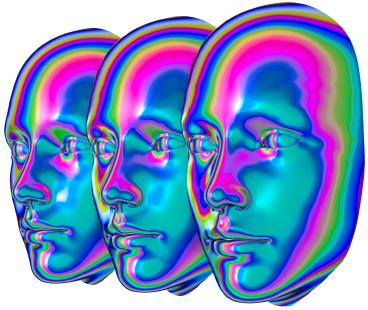- Mercados
- Trading
- Plataformas
- Ferramentas e Formação
Ferramentas
- T4Trade
- Blog
- Login
- Sign up
 PT
PT
Home > Psicologia de trading > Instintos de negociação
Este conceito defende ainda que estes elementos podem resultar em determinados comportamentos como pensamento enviesado, escolhas irracionais ou decisões tomadas “em cima do joelho”. A psicologia de trading também salienta a importância do autoconhecimento, gestão eficaz do risco, controlo emocional e pensamento equilibrado para enfrentar a pressão e tomar decisões racionais.
Os instintos de negociação são uma parte fundamental da nossa psicologia de trading. Referem-se aos pressentimentos, ou intuição, que o trader vai desenvolvendo ao longo do tempo e com a experiência. Normalmente são adquiridos através da formação e da prática contínuas. Implica estar bem informado sobre as notícias e acontecimentos do mercado e sobre os indicadores económicos.
Para poder confiar nos seus instintos de negociação tem de ter um bom autoconhecimento. Tem de ser capaz de diferenciar entre uma decisão baseada em informações e dados lógicos e uma decisão baseada em emoções ou sentimentos. É saber que a linha que separa aquilo que é objetivo daquilo que é subjetivo é por vezes ténue e, para que possa tomar boas decisões, é fundamental que saiba separar uma da outra.
Normalmente, os instintos de negociação são influenciados por 3 fenómenos psicológicos. Vamos analisá-los.
O viés sensorial advém da ideia de que formamos uma opinião com base em informações que podem ser tendenciosas. Estamos, permanentemente, a recolher informação de tudo o que nos rodeia. Isto é o que nos permite funcionar no dia-a-dia.
Mas também contribui para a nossa aprendizagem. No entanto, nem tudo o que ouvimos é obrigatoriamente imparcial, mesmo quando acreditamos que sim. Isto é ainda mais verdade se estivermos expostos a uma opinião única sobre um determinado assunto ou evento, de forma continuada. Se nada contrariar esse ponto de vista, é provável que se forme uma opinião baseada apenas “num lado da história” e que um “facto” se torne numa parcialidade.

Este conceito diz respeito ao medo do desconhecido. É uma decisão que tomamos, tentando evitar o que desconhecemos, o que não nos é familiar, algo que pode (ou não) acontecer. Na área do trading, este tipo de comportamento pode levar a uma tolerância ao risco muito baixa e, consequentemente, acabamos por fazer negociações não lucrativas.
Existem diversas razões que levam a evitar o vago. Uma das razões é não querer perder dinheiro. Outra razão, menos conhecida, é o medo de ganhar dinheiro. O que se deve ao facto de o trader poder ter medo de perder os seus ganhos, quer seja devido a obrigações fiscais ou outras, como as flutuações acentuadas do mercado.

Normalmente, a tangibilidade de antecipação acontece quando o sentimento de antecipação se torna o ponto central e não o objetivo de alcançar o pretendido.
Esse sentimento de antecipação pode tornar-se tão desgastante, quase aditivo, que o trader perde o foco de atingir o que tinha antecipado. Nomeadamente, a antecipação é influenciada por uma análise objetiva e também pela psicologia coletiva daqueles que participam no mercado.

Thank you for visiting T4Trade
This website is not directed at EU residents and falls outside the European and MiFID II regulatory framework.
Please click below if you wish to continue to T4Trade anyway.
Thank you for visiting T4Trade
This website is not directed at UK residents and falls outside the European and MiFID II regulatory framework, as well as the rules, guidance and protections set out in the UK Financial Conduct Authority Handbook.
Please click below if you wish to continue to T4Trade anyway.